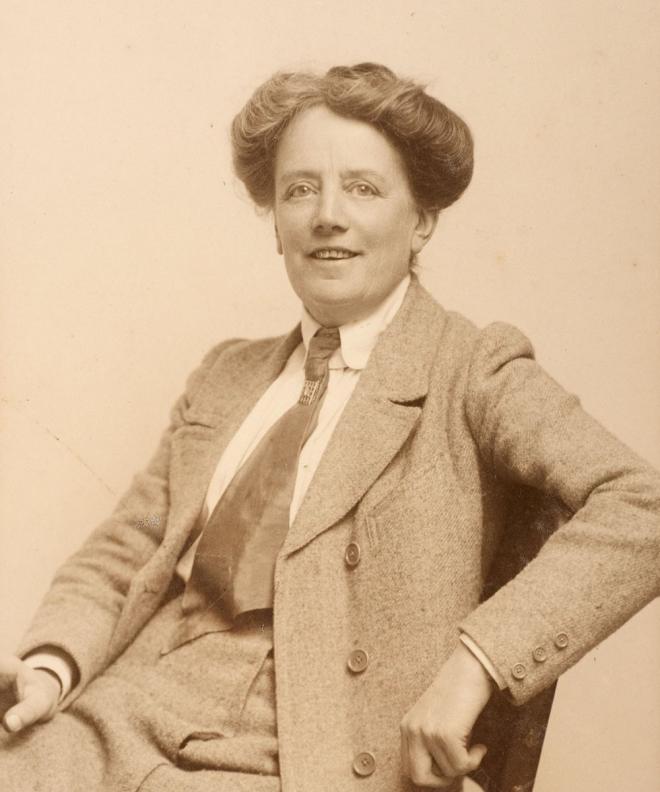Dame Ethel Smyth was a fascinating character. She was educated at the Leipzig Conservatory, where she met Antonin Dvořák, Pyotr Tchaikovsky, Edvard Grieg, and both Clara Schumann and Johannes Brahms. Her compositions ranged from songs to orchestral works, chamber music, and opera. She was also known for her activism: she took a two-year sabbatical from music to join the women’s suffrage movement, and her activities there involved some civil disobedience; this included throwing a rock through a window, a crime for which she spent two months in prison (there’s a story about her time there when she was visited by her friend, the conductor Thomas Beecham. He reported that upon hearing her fellow suffragists marching outside and singing, Smyth leaned out the window and with her toothbrush, began conducting). In later years after she stopped writing music, she wrote books.
Smyth was not conventionally religious, but after reading Thomas a Kempis’ The Imitation of Christ she turned back to the Anglican faith for a while, composing a Mass in D Major. Written in the grand, late-Victorian-English romantic style, the composer confessed that it was designed more for the concert hall than the church. One unconventional move was putting the Gloria at the end of the mass, not in second place, where it traditionally belongs; she simply thought it sounded better this way. The Mass in D got its first hearing in 1893 at the Royal Albert Hall. From all reports it was a triumph, but what’s ironic is that she was still disappointed that it was not performed in what she believed was its rightful place: an Anglican cathedral.
Smyth’s Mass was championed by her friend Thomas Beecham, Adrian Boult, and George Bernard Shaw; she herself declared that although she would write more, she would never write anything better.
Listen for yourself on Sunday, March 16 when Steven Fox leads the Cathedral Choral Society along with The Clarion Choir and the Baltimore Symphony Orchestra in a performance of Ethel Smyth’s Mass in D at Washington National Cathedral. More information can be found on their website.
WETA Passport
Stream tens of thousands of hours of your PBS and local favorites with WETA Passport whenever and wherever you want. Catch up on a single episode or binge-watch full seasons before they air on TV.
